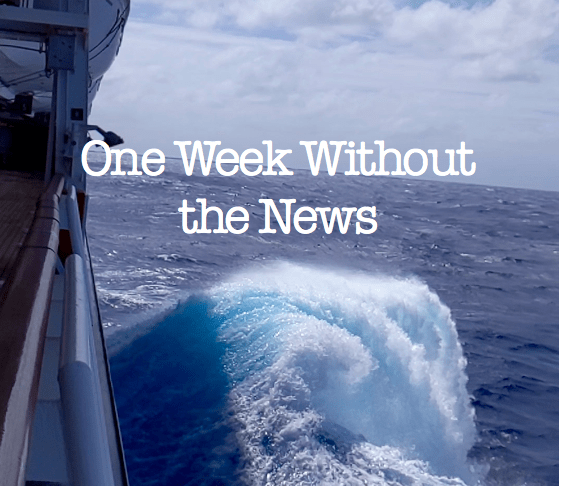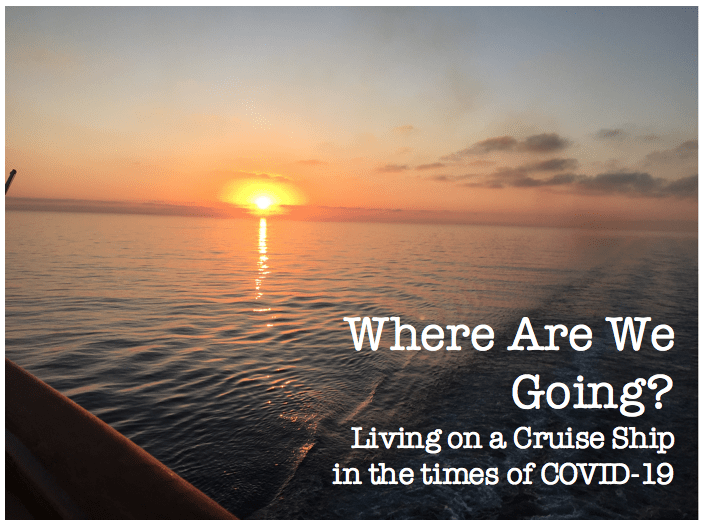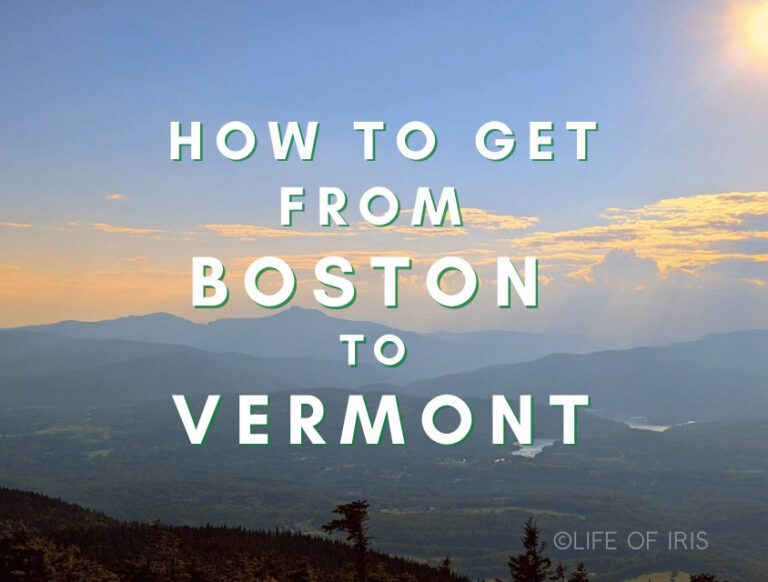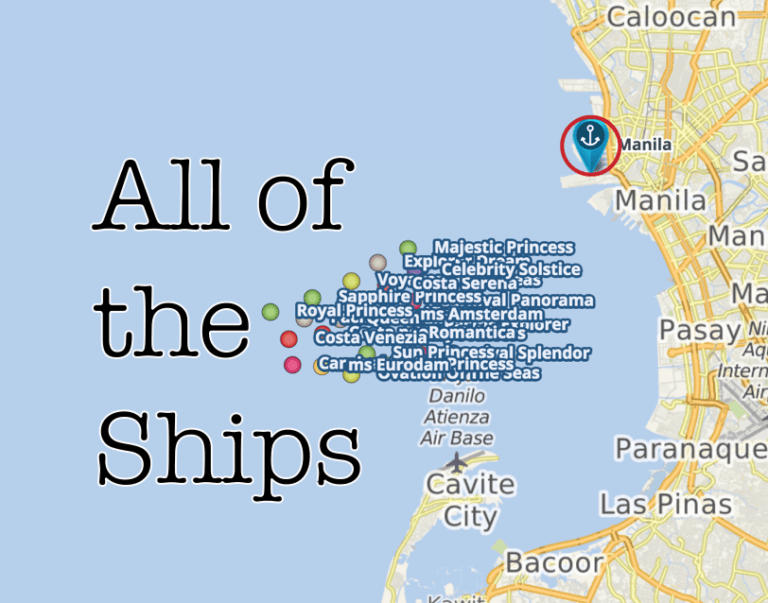One Week Without the News
I recently finished two books. “The Art of Thinking Clearly” by Rolf Dobelli, translated by Nicky Griffin, and “The Four Hour Work Week” by Timothy Ferriss. This is not only indicative of how much time I have on my hands with all of these sea days, but is also great as I’ve met one of my goals for the month.
“The Art of Thinking Clearly” takes cognitive biases and processes and breaks them down so that you can more easily understand some of the decision making processes that your brain does at a subconscious level as well as some tricks for, as the title would indicate, thinking clearly.
The other, “The Four Hour Work Week”, is a book that I have been interested in reading for a while now. The author, Tim Ferriss, also hosts one of my favorite podcasts. As the book cover says “Escape the 9-5, live anywhere and join the new rich” While a lot of the book focuses on automating your income, largely through product development, intelligent marketing, and outsourcing, I read it more for the general and overarching concept of “what is the worst that will happen if you pursue xyz dream?” For anyone interested in increasing their productivity or looking for resources on lifestyle design, either pick up the book or check out www.tim.blog.
These two books don’t necessarily have much in common, but as I was reading them there was a recommendation from both to stop watching and reading the news. The logic is that you can spend hours and hours watching the news and most of the time you are getting negative news or news that doesn’t specifically apply to you. The other part is that they both argued that if there was something big happening in the news someone would let you know. Alternatively, you could ask someone “anything interesting in the news lately?” This is a form of outsourcing – someone else is doing the work of reading and watching the news to decide what is important. If you trust their judgment on what items are important than there you have it – they will give you a brief synopsis on what is happening in the world and you can go about your day having only spent 5 minutes learning of the news that it likely took them hours to digest.
The other aspect of it was its helpfulness. One argued that out of all of the news that you digest in a year – according to Dobelli it is approximately 10,000 articles – how many offer insights or information that are actually beneficial to you? Based on the interviews he conducted it is typically only a couple out of 10,000.
Now, in our non-ship life – at home in either Vermont or in Scotland – I had somewhat already adopted it. We don’t really watch regular TV at either house and thus did not regularly watch news channels – instead opting for Netflix, TV shows or DVD’s. In Vermont I would get most of my news from the radio while driving around. It seems ironic that in the middle of the Indian Ocean I have more news channels to watch than at home, but alas, it is what it is.
The two news channels we get onboard are MSNBC and BBC. Onboard where there used to be Fox News they have replaced it with National Geographic Channel – a serious improvement. We also have access to snippets of news articles from top newspapers in US, UK, Canada, and Australia, available on the “free” portion of the internet onboard. I found with the free time that I had onboard and with the pandemic happening that I was getting sucked down the news wormhole, and to what ends? MSNBC has a counter at the top right of their screen showing infection rates and death counts as if they were tallying votes on election day. This left me feeling powerless, worried, depressed, and at some point, a little bit numb to it all.
Now, I am not saying that all of those emotions are bad. They are all quite logical for the circumstance. Powerless as I am in the middle of the ocean and can’t help, worried for the situation that exists in the world now, depressed because once again I can’t help, and numb because I was seeing it all of the time on the news. It became the norm.
Here’s the thing: even though those emotions are normal and logical it doesn’t mean that I should feel it regularly or even often if I don’t have to. It doesn’t mean that I can’t have and focus on the joy in life (like having raviolis at lunch yesterday) even when times are hard. It doesn’t mean that I should put myself in a state of feeling powerless, depressed, and worried on a regular basis.
So for the past week I’ve decided to heed the advice from these two books and not watch or read the news. What has happened is that when something happens that I need to know about inevitably someone will tell me about it. I don’t feel like I missed out on much “new” in the news. Not watching it regularly has certainly increased my happiness by not perpetually having the whole of this situation on my mind. Even without watching the news it’s hard to truly take it out of mind with social distancing on the ship, sailing to who knows where (it’s been switched that we’re sailing to Singapore now instead of to Indonesia. Indonesia will now come second. This is thanks to Singapore ruling that we need to have been at sea for 14 days prior to anchoring there), and no passengers on board, but it’s nice to not hear all of it all of the time.
My guess is that when either of these authors wrote their books they did not have this particular situation in mind. If I was at home I might continue to avoid the news because I would literally be living it, but as I am so distanced from much of this situation world-wide I feel compelled to know a bit more about what’s going on at home. Distancing myself entirely from the situation might be nice, but it doesn’t help me understand what my friends and family are going through. Doing your best to understand the situation that others are in is critical to building empathy, and empathy is critical for nearly every component of human relationships.
While I think my experiment has certainly been positive, I think in the current circumstance the rules need to be broken. My revised rule is not to never check the news, but to only check it once a week. Work to find the balance between both my own mental health as well as the immense amount of time it can take up to keep up with the news but also to understand what is happening for the rest of the world so I can be a better citizen in it.
And, as a way to feel a bit more like I am helping and not helpless being out in the middle of the ocean, I am going to start sewing face masks so if I can ever get off of this ship I can hopefully donate them to a hospital or community organization.






I like your thinking! I tend to avoid the news unless it’s being delivered to me via some comedic news variety show; mostly John Oliver or Trevor Noah. As a librarian, I would caution only getting your news from another person though-because everyone has biases. I anticipate that your route will morph with our newest updates-the world we live in is rather unpredictable right now but I continue to wish you, Stuart, and your crew health and safety as you continue your journey.
I have been doing it as well. Checking the news only once a week although my cousins have the TV on at all times and the angry news anchors, the heated arguments, the scare and fear, it can get overwhelming. Not that we mustn’t be ignorant but too much of something can be depressing especially in times like these.